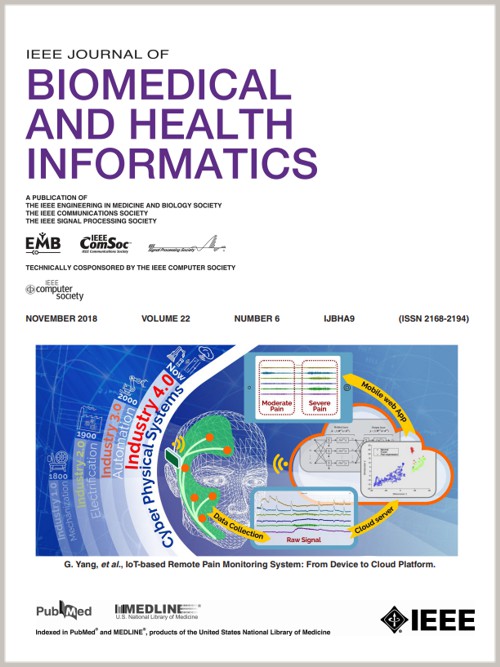A Trustworthy Curriculum Learning Guided Multi-Target Domain Adaptation Network for Autism Spectrum Disorder Classification
IF 6.7
2区 医学
Q1 COMPUTER SCIENCE, INFORMATION SYSTEMS
IEEE Journal of Biomedical and Health Informatics
Pub Date : 2024-10-08
DOI:10.1109/JBHI.2024.3476076
引用次数: 0
Abstract
Domain adaptation has demonstrated success in classification of multi-center autism spectrum disorder (ASD). However, current domain adaptation methods primarily focus on classifying data in a single target domain with the assistance of one or multiple source domains, lacking the capability to address the clinical scenario of identifying ASD in multiple target domains. In response to this limitation, we propose a Trustworthy Curriculum Learning Guided Multi-Target Domain Adaptation (TCL-MTDA) network for identifying ASD in multiple target domains. To effectively handle varying degrees of data shift in multiple target domains, we propose a trustworthy curriculum learning procedure based on the Dempster-Shafer (D-S) Theory of Evidence. Additionally, a domain-contrastive adaptation method is integrated into the TCL-MTDA process to align data distributions between source and target domains, facilitating the learning of domain-invariant features. The proposed TCL-MTDA method is evaluated on 437 subjects (including 220 ASD patients and 217 NCs) from the Autism Brain Imaging Data Exchange (ABIDE). Experimental results validate the effectiveness of our proposed method in multi-target ASD classification, achieving an average accuracy of 71.46% (95% CI: 68.85% - 74.06%) across four target domains, significantly outperforming most baseline methods (p<0.05).用于自闭症谱系障碍分类的可信课程学习引导的多目标领域适应网络。
在多中心自闭症谱系障碍(ASD)分类方面,领域适应已取得了成功。然而,目前的领域适应方法主要侧重于在一个或多个源领域的辅助下对单个目标领域的数据进行分类,缺乏在多个目标领域识别自闭症谱系障碍的临床场景的能力。针对这一局限,我们提出了一种可信课程学习引导的多目标域自适应(TCL-MTDA)网络,用于识别多个目标域中的 ASD。为了有效处理多个目标领域中不同程度的数据偏移,我们提出了基于 Dempster-Shafer (D-S) 证据理论的可信课程学习程序。此外,我们还在 TCL-MTDA 过程中集成了领域对比适应方法,以调整源领域和目标领域之间的数据分布,从而促进领域不变特征的学习。我们在自闭症脑成像数据交换中心(ABIDE)的 437 名受试者(包括 220 名 ASD 患者和 217 名 NCs)上对所提出的 TCL-MTDA 方法进行了评估。实验结果验证了我们提出的方法在多目标 ASD 分类中的有效性,在四个目标领域中取得了 71.46% (95% CI: 68.85% - 74.06%) 的平均准确率,明显优于大多数基线方法(p
本文章由计算机程序翻译,如有差异,请以英文原文为准。
求助全文
约1分钟内获得全文
求助全文
来源期刊

IEEE Journal of Biomedical and Health Informatics
COMPUTER SCIENCE, INFORMATION SYSTEMS-COMPUTER SCIENCE, INTERDISCIPLINARY APPLICATIONS
CiteScore
13.60
自引率
6.50%
发文量
1151
期刊介绍:
IEEE Journal of Biomedical and Health Informatics publishes original papers presenting recent advances where information and communication technologies intersect with health, healthcare, life sciences, and biomedicine. Topics include acquisition, transmission, storage, retrieval, management, and analysis of biomedical and health information. The journal covers applications of information technologies in healthcare, patient monitoring, preventive care, early disease diagnosis, therapy discovery, and personalized treatment protocols. It explores electronic medical and health records, clinical information systems, decision support systems, medical and biological imaging informatics, wearable systems, body area/sensor networks, and more. Integration-related topics like interoperability, evidence-based medicine, and secure patient data are also addressed.
 求助内容:
求助内容: 应助结果提醒方式:
应助结果提醒方式:


